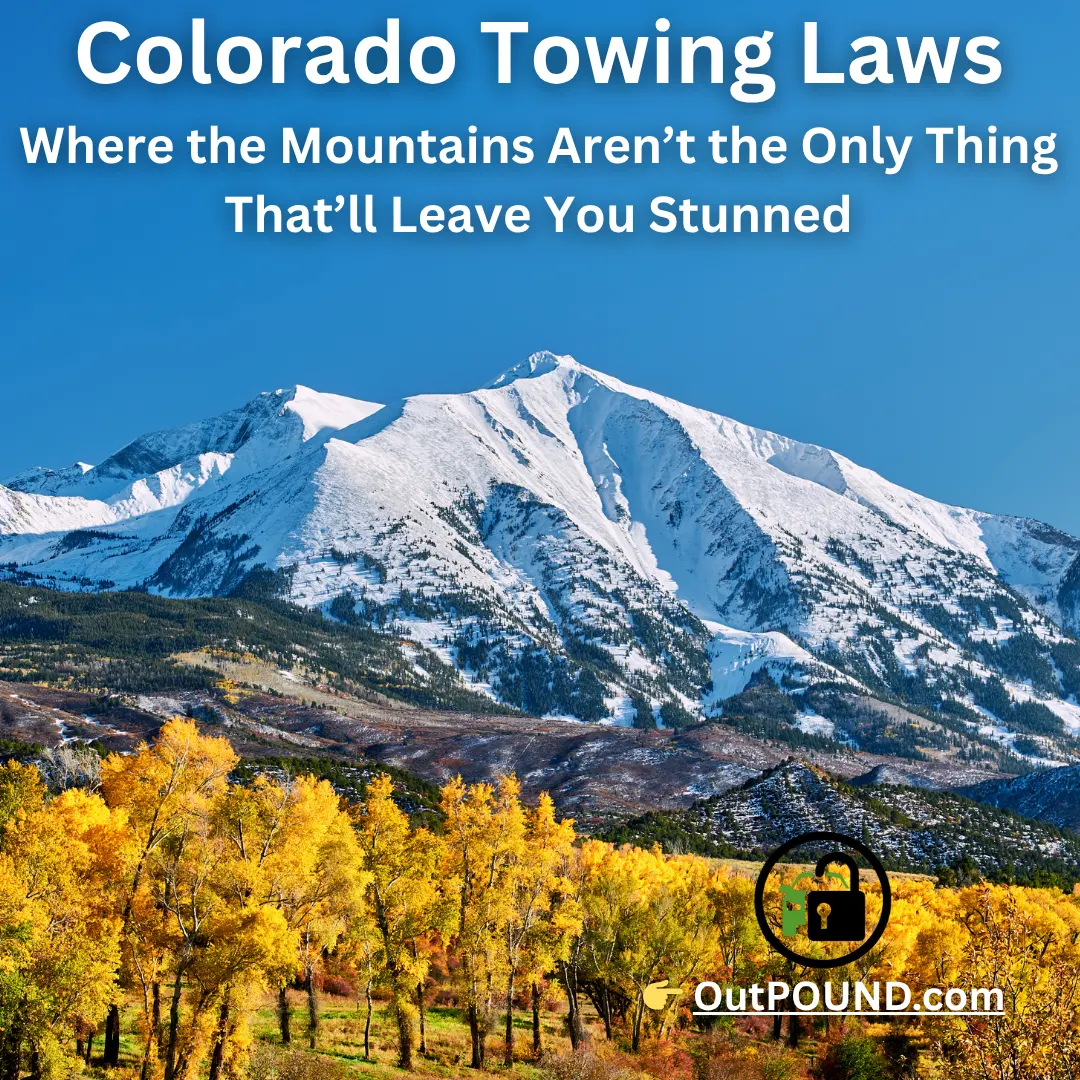Where the Mountains Aren’t the Only Thing That’ll Leave You Stunned

Colorado. Home to Rocky Mountains, craft breweries, and towing laws that climb just as steeply as Pikes Peak. In this state, your car isn’t just a vehicle, it’s a potential jackpot for any licensed tow operator with a hook and a storage lot.
If you’ve ever parked a little too close to a “No Parking” sign in Denver or left your car overnight near a Boulder strip mall, congratulations: you’re about to experience the magic of Colorado towing.
Who Can Tow?
Only licensed operators may legally tow vehicles in Colorado. Simple enough, except that the licensing system doesn’t stop shady operators from playing fast and loose with the law. Basically, if a tow company has a license, they’re free to swoop in and snatch your car like it’s an all you can eat buffet.
When Can They Tow?
Colorado allows towing if it’s authorized by a property owner or law enforcement. That means parking on private property, blocking a driveway, or even leaving your car in a “temporary no-parking” zone can turn your sedan into someone else’s storage project.
The law aims to prevent abuse, but enforcement is spotty. Some lots follow the rules; others treat “reasonable” like a suggestion and your wallet like a piñata.
Notification Requirements
Colorado law is slightly friendlier than some states, requiring a written notice within 48 hours of a tow. Sounds nice, but in practice, you often won’t know where your car is until you find yourself wandering the internet or calling tow yards like a frantic game of “Where’s My Car?”
Fees & Charges: Welcome to Fee Mountain
Colorado mandates that towing and storage fees must be reasonable and disclosed. That’s like saying a Yeti exists somewhere in the Rockies, technically true, but good luck ever seeing it. Expect fees for hook-up, storage, after-hours retrieval, and “administrative handling,” which may or may not include a tip for the guy who looked at your car while drinking a latte.
Some tow companies will even calculate fees like a math final you didn’t study for, line items stacked high enough to make your head spin and your wallet weep.
Vehicle Release: Show Me the Money
To retrieve your vehicle, you’ll need proof of ownership and payment of all fees. Credit card? Maybe. Cash? Probably. Smile politely? Only if you want the tow attendant to actually unlock your car. Some lots operate like Fort Knox: a missing signature, a “manager not available,” and suddenly your car’s enjoying a longer stay than you anticipated.
Legal Recourse: Paperwork, Hearings, and Tears
Yes, you can challenge an illegal tow or dispute fees. But be ready: hearings, filings, and bureaucracy thicker than the Rockies await. By the time you win, your car may have already gone on a new adventure —auctioned off to some unsuspecting buyer.
Breaking Free from the Tow Trap
Colorado’s towing laws leave plenty of room for tow companies to run the show. Vague enforcement, “reasonable” fees, and notice requirements that are more polite suggestion than rule mean your car can disappear in a heartbeat.
Your best survival strategy? Park carefully, read every sign like it’s a legal contract, and know exactly who to call when things go sideways. When they inevitably do, skip the panic and head straight to OUTPOUND.com.
OUTPOUND is your lifeline for navigating Colorado’s tow-landscape: we’ll help you locate your car, understand your fees, and maybe even claw back some of what the tow companies think they’re owed. Because in Colorado, the only thing steeper than the mountains is the bill for getting your car back.

